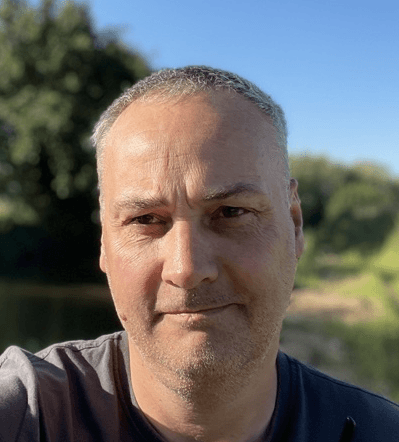
Simon Jenner
Tuesday 20 April 2021

We reviewed over data on over one thousand startups that have met with Million Labs in the past eighteen months to bring you the skinny on the no-code market.
Posted in:
Startups
Since January 2020 we have been gathering data on no-code start-ups. We reviewed a little over a thousand projects to bring you a window into the new digital frontier and thought we would share a few insights…
What are people building?
The two biggest contenders: Marketplaces and dashboards.
Marketplaces were requested 149 times. More often than not two-sided marketplaces with a single admin user. This makes logical sense. There are already great tools available for startups building information and e-commerce sites, but if you want to connect people seeking a product or service with those selling it, flexible solutions are few and far between. By far the most popular use of a marketplace is for recruitment or freelancing (45).
Running close second place are dashboards (145). The flexibility that no-code tools provide for collecting, processing, manipulating and displaying data has driven a lot of projects into the community. Tools like Bubble, Airtable and Xano and AppSheet are great solutions for people that want to up their spreadsheet game.
Other popular use cases include community management (70), fintech (54), events management (50) music sharing services (45), video conferencing (44), project management (19) and social networks (17).
Functionality
It’s interesting to know what people want their no-code applications for. It’s also interesting to find out what they want them to do.
Unsurprisingly payments tops the list (254). If you are building an application you are likely to be building a business and businesses need to be monetised. API integration (127) comes in a strong second place. This is driven by the relative complexity of the the task vs, say navigation (8) which can be developed by beginners working on their own applications.
The ability to play video (124) is a surprising third place, particularly when you compare it with other media like images (96) and audio (79). VR/AR and 360 images are very rare requirements.
Other regularly requested functionality included user profile pages (119), search (111), login and sign up (105) and chat (81).
Partners
So what services are no-coders integrating into their platforms?
Well I guess that it’s no surprise that Google (94) is winning with maps, places and analytics all popular requests. Stripe (67) is in a strong second place which shows that they have won the hearts and minds of the development community (PayPal was requested 24 times).
Other brands used by no-code founders included Facebook (29), Instagram (27), Microsoft Excel (23), AWS (21) and YouTube (17). Twitter has almost vanished (1).
One final note on brands a full 26 founders made reference to their application being ‘The Uber of’… so that trend hasn’t gone away yet.
Clones
Why anyone would want to pay us to clone an application (or worse ask us to invest in building a clone) I’m not sure, but they do…
AirBnb wins this battle. 22 people wanted us to clone AirBnb. This is all the more surprising when you consider that clone requests are usually driven by recent successes. Last year Thumbtack (7) and Patreon (3) were popular. More recently Clubhouse (4) has been all the rage.
Channels
One big surprise is that native mobile applications make up a far smaller cohort of projects than expected (95). Perhaps this relates to more limited use cases for native applications, limitations in terms of monetisation or perhaps no-code simply hasn’t penetrated this market deeply yet. For whatever reason mobile apps are outnumbered 10 to 1 by responsive web applications.
Founders We have probably mentioned before that the average budget available to a founder that wants to build an application is $4,670. Far more than half of founders have a budget of $1,000 or less. With that in mind it’s a good job that so many (149) are looking to develop a minimum viable product. About 70% of them are looking to use bubble.io to do it.
That limited budget might be linked to the fact that no-code founders are far more likely to be going it alone. Five times more no-code startups are founded by individuals than they are by teams (even teams of two).
We know from surveys that our founders are incredibly diverse such is the democratising power of removing barriers to technology. They are also pretty much global, so much so that Simon has to look up countries he’s never heard of from time to time (his geography teacher would be disappointed).
Founders are not shy about negotiating. We did a word frequency analysis of RFP submitted through our various partners and the Million Labs website. Around quarter of founders came straight out and said that they have a limited budget and another quarter inferred it through words like ‘basic’, ’simple’, ‘limited’ and (that developer’s favourite) ‘just’.
That same analysis tells us that founders ‘Need’ our services more than they ‘Want’ them. Nearly a fifth asked for ‘Help’ and more than a third said ‘Please’ and ‘thank you’.
Fun Facts
Finally, some fun facts. We have been baffled, delighted and surprised by a lot of things over the past eighteen months. Here’s some of them:
More people have asked us to build applications for undertakers than they have to integrate Facebook. Thirty three beauty salons have approached us. Sadly they haven’t been able to do anything for Simon. There are hardly any swear words in any of the communications we have received asking for our services. Just one ‘Ass’ and one ‘Hell’. There are, however, plenty in our internal emails. We have not been asked to build applications relating to guns, drugs or tobacco. We have had a few requests for alcohol related services and just the one pornographer. In all the specifications we received the use of positive emotional phrases outnumbered negative phrases 45 to 1.
What are people building?
The two biggest contenders: Marketplaces and dashboards.
Marketplaces were requested 149 times. More often than not two-sided marketplaces with a single admin user. This makes logical sense. There are already great tools available for startups building information and e-commerce sites, but if you want to connect people seeking a product or service with those selling it, flexible solutions are few and far between. By far the most popular use of a marketplace is for recruitment or freelancing (45).
Running close second place are dashboards (145). The flexibility that no-code tools provide for collecting, processing, manipulating and displaying data has driven a lot of projects into the community. Tools like Bubble, Airtable and Xano and AppSheet are great solutions for people that want to up their spreadsheet game.
Other popular use cases include community management (70), fintech (54), events management (50) music sharing services (45), video conferencing (44), project management (19) and social networks (17).
Functionality
It’s interesting to know what people want their no-code applications for. It’s also interesting to find out what they want them to do.
Unsurprisingly payments tops the list (254). If you are building an application you are likely to be building a business and businesses need to be monetised. API integration (127) comes in a strong second place. This is driven by the relative complexity of the the task vs, say navigation (8) which can be developed by beginners working on their own applications.
The ability to play video (124) is a surprising third place, particularly when you compare it with other media like images (96) and audio (79). VR/AR and 360 images are very rare requirements.
Other regularly requested functionality included user profile pages (119), search (111), login and sign up (105) and chat (81).
Partners
So what services are no-coders integrating into their platforms?
Well I guess that it’s no surprise that Google (94) is winning with maps, places and analytics all popular requests. Stripe (67) is in a strong second place which shows that they have won the hearts and minds of the development community (PayPal was requested 24 times).
Other brands used by no-code founders included Facebook (29), Instagram (27), Microsoft Excel (23), AWS (21) and YouTube (17). Twitter has almost vanished (1).
One final note on brands a full 26 founders made reference to their application being ‘The Uber of’… so that trend hasn’t gone away yet.
Clones
Why anyone would want to pay us to clone an application (or worse ask us to invest in building a clone) I’m not sure, but they do…
AirBnb wins this battle. 22 people wanted us to clone AirBnb. This is all the more surprising when you consider that clone requests are usually driven by recent successes. Last year Thumbtack (7) and Patreon (3) were popular. More recently Clubhouse (4) has been all the rage.
Channels
One big surprise is that native mobile applications make up a far smaller cohort of projects than expected (95). Perhaps this relates to more limited use cases for native applications, limitations in terms of monetisation or perhaps no-code simply hasn’t penetrated this market deeply yet. For whatever reason mobile apps are outnumbered 10 to 1 by responsive web applications.
Founders We have probably mentioned before that the average budget available to a founder that wants to build an application is $4,670. Far more than half of founders have a budget of $1,000 or less. With that in mind it’s a good job that so many (149) are looking to develop a minimum viable product. About 70% of them are looking to use bubble.io to do it.
That limited budget might be linked to the fact that no-code founders are far more likely to be going it alone. Five times more no-code startups are founded by individuals than they are by teams (even teams of two).
We know from surveys that our founders are incredibly diverse such is the democratising power of removing barriers to technology. They are also pretty much global, so much so that Simon has to look up countries he’s never heard of from time to time (his geography teacher would be disappointed).
Founders are not shy about negotiating. We did a word frequency analysis of RFP submitted through our various partners and the Million Labs website. Around quarter of founders came straight out and said that they have a limited budget and another quarter inferred it through words like ‘basic’, ’simple’, ‘limited’ and (that developer’s favourite) ‘just’.
That same analysis tells us that founders ‘Need’ our services more than they ‘Want’ them. Nearly a fifth asked for ‘Help’ and more than a third said ‘Please’ and ‘thank you’.
Fun Facts
Finally, some fun facts. We have been baffled, delighted and surprised by a lot of things over the past eighteen months. Here’s some of them:
More people have asked us to build applications for undertakers than they have to integrate Facebook. Thirty three beauty salons have approached us. Sadly they haven’t been able to do anything for Simon. There are hardly any swear words in any of the communications we have received asking for our services. Just one ‘Ass’ and one ‘Hell’. There are, however, plenty in our internal emails. We have not been asked to build applications relating to guns, drugs or tobacco. We have had a few requests for alcohol related services and just the one pornographer. In all the specifications we received the use of positive emotional phrases outnumbered negative phrases 45 to 1.
Ready to launch your startup idea with an MVP?
Download our step by step guide for non-technical founders to create a startup Minimum Viable Product (MVP)
Get the eBook

